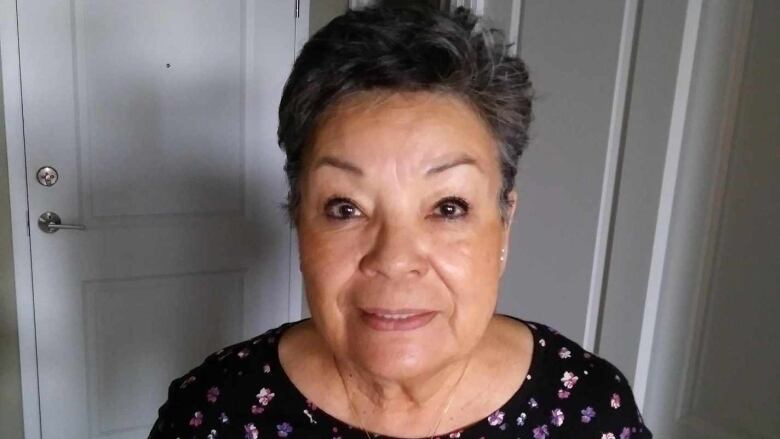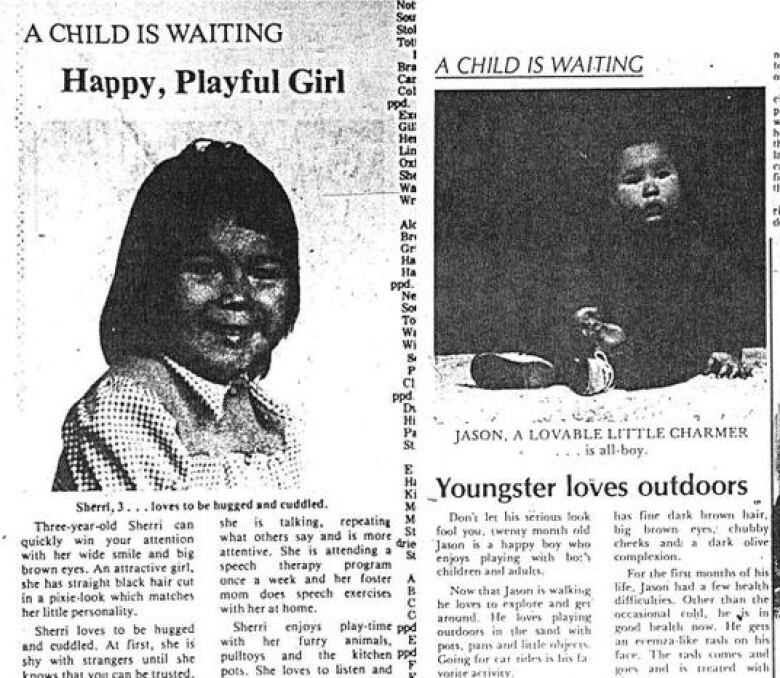Sixties Scoop settlement firm sent man's Indian status information to the wrong person
Federal department says error an 'isolated incident'

The firmadministering the Sixties Scoop settlement agreement mailed a B.C. man's Indian status informationto a woman in Ontario by mistake.
Collectiva Class Action Services, the firm appointedby the courtto administer claims under the Sixties Scoop settlement agreement, mailed an envelope addressedto Diane Ormesher in Woodstock, Ont., that contained a four-page letter addressed to a man in Campbell River, B.C., with information about his Indian status.
The $875 million Sixties Scoop settlement agreement set aside $750 million for all status First Nations and Inuit children placed into foster care or adopted by a non-Indigenous parent between 1951 and 1991.
Many people who were adopted out duringthe Sixties Scoop havelittle information on their biological parents and theirstatus. To apply for the settlement, they need to determine if they have or are eligible forstatus, which is done through the Indian Registrar at Indigenous Services Canada.
The federaldepartment sought consentfrom applicants to disclose status information to Collectiva as part of the application for Sixties Scoop settlement individual payments.
The letterOrmesherreceived was from the Indian Registrar informing the B.C.individual about the conclusion of research into thestatus of his parents.
"I have this man's documents, personal information that nobody else should see but him," said Ormesher, in a text message to CBCNews.
Ormesher received the envelope on Jan. 17 from Collectivathinking it was about her own claim application andsearch to determine status. She saidit appears her parents, who were Tuscarora, may have takenscrip a one-time payment of land or money that extinguished status. She has since retained a lawyer to challenge a previousrejection letter.
"f feel like my heritage has been denied and my ancestry hasn't been formally acknowledged," said Ormesher.
When she received the letter intended for the B.C. man,Ormesher said she phonedCollectiva and the Crown-IndigenousRelations department to inform them of the mishap and to find out if her own information was sent to someone else, but no one would return her calls.
"I left phone numbers, Ileft file numbers," she said. "They won't call us back."
'Disappointed in the process'
After CBC News contacted Collectiva official Anna Vetere,Crown-Indigenous Relations and Indigenous Services on Jan. 23seeking comment,Ormesher said Vetere phoned her that afternoon saying she had received a call from the media about the situation and they were now looking into it.
Vetere did not return CBC News's repeated requests for comment.
Ormesher said she also received a call on Jan. 24 from an official with Indigenous Serviceswho apologized for the mix-up and asked her to send the man's documents back to the department.
"This whole business with Collectiva, even Crown-Indigenous, I feel really disappointed in the process," said Ormesher.
"I find there has not been much compassion;there is no respect.I've never had anybody from either one of those organizations take you by the hand and say 'You're not understanding the system, how can we help you?'"

In an emailed statement to CBC News,Crown-Indigenous Relations said it was aware of the incident and is moving to rectify it and prevent a repeat.
"This appears to have been an isolated incident caused by human error, whereby an incorrect address label was used to communicate information," said the statement.
"Steps are being taken by the government of Canada to investigate, contain and mitigate the impacts on affected individuals and ensure this does not happen in the future."
Jasminka Kalajdzic, an associate professor of law at the University of Windsor, said the document mix-up was a "significant" error that may have exposed flaws in how the Sixties Scoop settlement agreement is being managed and implemented.
Kaladjzic, who is also director of a class action clinic at the university, said she was contacted by Ormesher and other potential Sixties Scoop settlement recipients with concerns about how it's being handled.
"No wonder class members are concerned about what other mistakes and omissions are happening," she said.
"This is really important stuff. These are private documents about a painful period in people's lives. This is a settlement that is supposed to help them heal."
The application period for settlement claims closed last year.The interim board of the foundation funded by thesettlement continues to holdengagement sessionsand an online survey for input onhow best to serve Sixties Scoop survivors.












_(720p).jpg)


 OFFICIAL HD MUSIC VIDEO.jpg)
.jpg)



























































































